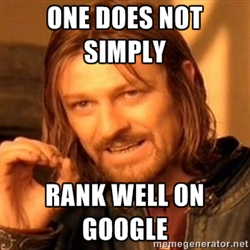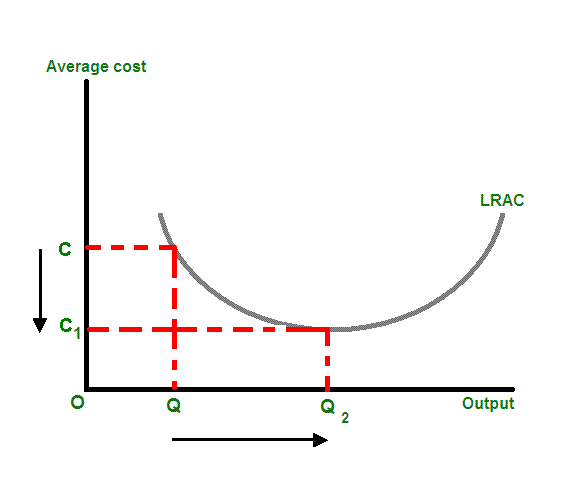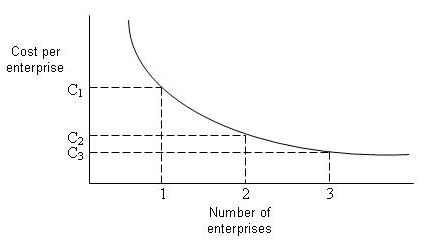
Some Inconvenient Truths About SEO
 So you think you know something about SEO? Let me guess: you read a few blog posts, and maybe even The Beginner’s Guide to SEO? Well, if Malcolm Gladwell is to be believed (and he probably should be because he’s wicked smart), you probably don’t know sh*t about SEO because it takes about 10,000 hours to master anything.
So you think you know something about SEO? Let me guess: you read a few blog posts, and maybe even The Beginner’s Guide to SEO? Well, if Malcolm Gladwell is to be believed (and he probably should be because he’s wicked smart), you probably don’t know sh*t about SEO because it takes about 10,000 hours to master anything.
I myself, on the other hand, have been working at the SEO game for almost 9 years, which puts me at almost a twice-over expert. I’ve been watching the Google algorithm evolve for almost a decade, and have had to adapt my strategies and tactics every step along the way. So let me share a few pointers with you so that you’re in a better position to make a sound decision next time you have to decide whether to invest in SEO or evaluate whether the SEO you’re thinking of hiring is full of sh*t or not.
Intentional Targeting: How SEO Offers the Most Targeted Traffic Online
Before I get to the inconvenient truths about SEO, let me remind you why you those inconveniences are worth it: SEO offers the most targeted source of traffic online. Why? Because, well, search users are (1) already looking for your products/services, and (2) really feel that the organic search results represent the best possible options available to them (if only because they don’t realize that there are SEOs like me out there manipulating those results).

Take social users, for instance. You might be able to target them by interest or social graph, but you can’t target them by intent. In other words, you can’t control for what mindset they happen to be in. Users use Facebook or Twitter to socialize or share, and when you’re hanging out and having fun, you’re not necessarily in the mood to buy anything.
With search, however, users are actively looking for products/services similar to yours. And that means that they’re already one step down the conversion funnel.
1. SEO is NOT a Quick Fix
 The first inconvenient truth about SEO is that it’s not a short-term strategy. Depending on your industry and target market, it’s much more of a medium- to long-term one.
The first inconvenient truth about SEO is that it’s not a short-term strategy. Depending on your industry and target market, it’s much more of a medium- to long-term one.
Simply put, it takes time to obtain (i.e. “earn”) organic rankings. It’s just not possible to own any Google (or Bing or Yahoo!) rankings overnight. Rather, if you’re truly committed to SEO (and reaching those targeted users), you’re probably not going to start seeing an uptick for 3-6 months, and it might be 12 months before you get that return on your investment. You will, however, see that return. After all, these are the most targeted and (pre-)qualified online, and they are already one step down the conversion funnel.
2. SEO Offers Economies of Scale
Once you’ve obtained some decent rankings (and I’m talking Top 5 rankings, here, because the vast majority of users don’t click on anything after position #5), your cost-per-click (or cost-per-acquisition) actually diminishes with every click. In other words, SEO offers you economies of scale.

You see, with PPC or social media ads, there’s a fixed cost associated with every acquisition — i.e. you pay about the same for every click. With SEO, however, every referral you get from the search engine results pages (SERPs) costs you less and less with every click.
The problem with obtaining these economies of scale (or any, for that matter), however, is that you have to invest up to a certain point before you can reach them. So not only does it take time (see point #1 above), it also takes resources.
3. SEO Offers Economies of Scope
In addition to offering economies of scale, SEO also offers economies of scope. Basically, once you obtain ranking on one keyword, it becomes a lot easier to rank on other keywords.

The reason is that every trusted or authority page on your site contributes to the over trust and authority of the entire site. So when you create a new page, that new page gets to sorta piggyback off of the credibility of the other pages that are already ranking.
This doesn’t, of course, mean that new pages (or products, or services) will automatically rank alongside (or even nearly as well as) those that you’ve already invested in SEO for. But it does mean that you (probably) won’t have to invest (proportionally) as much in those new rankings as you did in the ones you’ve already earned.
The inconvenience of these economies of scope, however, is that you’ll have to be investing in new products/services (and their respective pages) before you can realize those efficiencies.
4. SEO is Equity
 Just like SEO is a medium- to long-term strategy, and just like it offers economies of scale and economies of scope, it’s also something that offers equity. Basically, the rankings you have are a kind of earned real estate, and like all real estate, it needs to be tended to if it’s going to maintain its value.
Just like SEO is a medium- to long-term strategy, and just like it offers economies of scale and economies of scope, it’s also something that offers equity. Basically, the rankings you have are a kind of earned real estate, and like all real estate, it needs to be tended to if it’s going to maintain its value.
In other words, you have protect your investment. So while it’ll cost you so much to rank on certain range of terms, you can’t just set it and forget it. Once you own (or achieve) certain rankings, you’ll have to invest in maintaining those rankings. This means allotting a certain amount of budget in defending or protecting your investment.
Just like a reigning champ, you can’t just rest on your laurels. You either have to go into retirement or be that defending champ that keeps getting in the ring — staying sharp and nimble, and continuously winning/earning your top rankings.
5. SEO Requires Killer Content
You know that whole thing about content being king? Well, part of the reason is that you’re probably not gonna be able to rank well without some good content behind you.

And I’m talking more about that viral mill kinda content that’s just overhyped linkbait. I mean, sure, producing that kind of content won’t hurt your rankings — and the tons of backlinks and social signals it generates will certainly help your site’s overall trust and authority with search engines. But it’s not gonna help you rank on targeted terms.
Rather, what you’re gonna need is the kind of content that your target market is actually gonna be interested in. This means that it has to be related to your products/services (think how-to’s, support forums, and lifehacks) so that it actually is relevant to the terms that your target market is searching for (and that you’re trying to rank on). And since what counts as killer content for one brand isn’t the same for one brand as it is for another, this also might mean getting customer feedback on what it is users like about different content and why, and then using that insight to refine and focus your content efforts on an ongoing basis.
6. SEO is Technical
 Last but not least, SEO is both a science and an art, and that means that there’s a technical side to it. Simply put, all the great marketing and content in the world isn’t going to help you outrank the competition if your site isn’t up to par. In other words, it doesn’t matter who the driver is if the engine is sh*t.
Last but not least, SEO is both a science and an art, and that means that there’s a technical side to it. Simply put, all the great marketing and content in the world isn’t going to help you outrank the competition if your site isn’t up to par. In other words, it doesn’t matter who the driver is if the engine is sh*t.
This often means developing and maintaining a site that’s (1) fully indexable, and (2) doesn’t create duplicate content issues. So while it’s tempting (and fallacious) to think dev resources are better allocated elsewhere, you have to make sure that both your front- and back-end are meeting SEO best practices, and that those best practices are applied to every future site build.